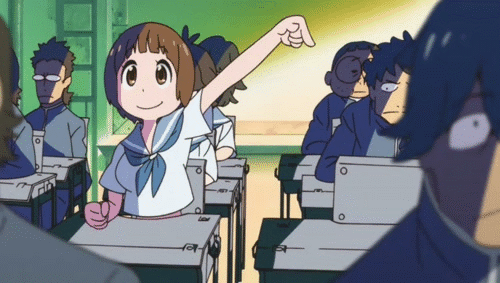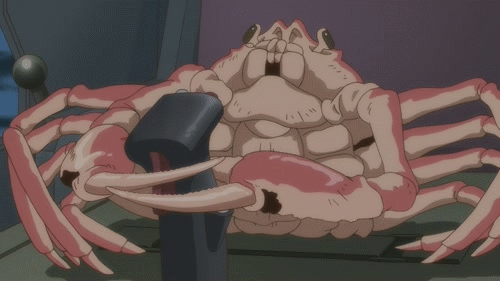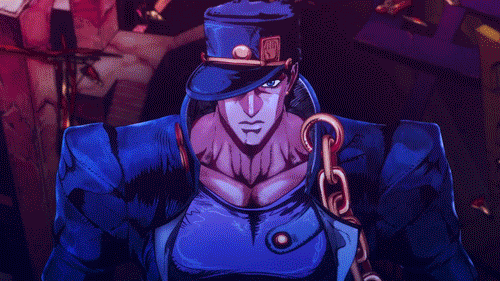The Man of the Crowd – Representative of Humanity’s Secrets
Hey, it's HSMediaNerd, here to provide some more content! Here's another analysis in the same vein as my Great Gatsby post, this time of a short story written by the ever-so-famous Edgar Allan Poe. Enjoy!
Edgar Allan Poe’s short story The Man of the Crowd centers on a nameless narrator who has recently recovered from a sickness. Now, he spends his time observing the people around him, describing them in great detail, categorizing them based on their dress and actions. However, a man appears one day, who the narrator is able to physically describe but does not fit into any of the narrator’s predetermined categories, and completely “arrest[s] and absorb[s]” (Poe 4) the narrator’s attention. His curiosity taking over, the narrator follows the man around, trying to figure out the man’s story. After a day, the narrator gives up, deciding that it’s impossible to learn anything else about the man, this “man of the crowd,” (7).
However, the question remains: Who is the man of the crowd, and what is his relationship with the crowd? Is he an interloper into the ordinary lives of the masses, or is he just an ordinary man that happens to stick out? It means neither. The “man of the crowd” means that the man represents the crowd’s unspoken secrets, showing how should not be judged just by looking at their “countenance[s]” (4). The narrator begins the story believing he can learn all that there is to know about humans from a single glance, but the man proves him otherwise. Unlike what the narrator initially believes, the man shows that there are secrets behind every countenance, and those secrets are not easily organized into groups. The narrator fails to recognize this idea of secrecy until he tries to follow the man, entranced by his peculiarity, and eventually learns that there is a lot more to humanity than what lies on the surface.
Something humans tend to do upon meeting someone for the first time is to classify the other person, putting him or her into a predetermined group. This is the mindset the narrator initially has in the story. He states, "The wild effects of the light enchained me to an examination of individual faces…in my peculiar mental state, I could frequently read, even in that brief interval of a glance, the history of long years," (4). In this quote, the narrator arrogantly brags to the reader about how he is able to learn about a person’s life just from a glimpse of their face. The narrator’s earlier observations show how he could come to this conclusion, as he groups similar people together and is able to describe them in great detail. For example, the narrator is able to describe gamblers from the crowd with an abnormal amount of detail: "They wore every variety of dress, from that of the desperate thimble-rig bully, with velvet waistcoat, fancy neckerchief, gilt chains, and filigreed buttons, to that of the scrupulously inornate clergyman that which nothing could be less liable to suspicion," (3). The excessive usage of descriptive adjectives such as “scrupulously”, “gilt”, and “thimble-rig” shows how the narrator has been watching the crowd and taking note of people who dress similarly for a very long time. So, it makes sense that the narrator believes he is able to read people solely based on a slight glance at the face, since he feels that he has mastered the art of scrutinizing people. That is, until he sees the man of the crowd.
When the narrator first sees the man, he almost immediately attempts to analyze him, but is left curious to learn more:
I was thus occupied in scrutinizing the mob, when suddenly there came into view a countenance…which at once arrested and absorbed my whole attention, on account of the absolute idiosyncrasy of its expression…As I endeavored…to form some analysis of the meaning conveyed, there arose confusedly and paradoxically within my mind, the ideas of mental power, of caution, of penuriousness, of avarice, of coolness, of malice, of blood-thirstiness, of triumph, of merriment, of excessive terror, of intense – of extreme despair. I felt singularly aroused, startled, fascinated…Then came a craving desire to keep the man in view – to know more of him, (4).
What intrigues the narrator upon first glance is the man’s expression. As stated in the quote above, the narrator was "arrested...on account of the absolute idiosyncrasy of its expression". The reason why this outlandish expression is so interesting to the narrator is because he is used to seeing the same expressions over and over again. The sight of something new, something that is not immediately recognizable, comes as a shock to the narrator, as he believes he has learned all there is to know about humanity. The narrator uses the words "confusedly" and "paradoxically" to describe how his conclusions do not make sense, as adjectives like "coolness", "malice", "triumph", "merriment" and "despair" all hit different aspects of the emotional spectrum, and are not usually used to describe a person all at once. Normally, the narrator is able to describe people with adjectives that make sense together, such as how he depicts businessmen: "[they] had a satisfied business-like demeanor, and seemed to be thinking only of making their way through the press," (2). A man who is able to bewilder the narrator this much, a narrator who believes himself to be a master of observation, definitely peaks his curiosity, and the narrator follows him throughout London.
As the narrator follows the man, he notices that the man never stops wandering around the city, but changes demeanor depending on the atmosphere. For example, when walking through a large crowd of people, the man moves more slowly and cautiously, but when walking in a brightly-lit square, “his chin f[alls] upon his breast, while his eyes roll…wildly from under his knit brows, in every direction,” (5). Another peculiarity the narrator notices is how the man “enter[s] shop after shop, priced nothing, spoke no word, and looked at all objects with a wild and vacant stare,” (5). It is within these actions that the “man of the crowd” represents the secret desires of human beings. In crowded situations, especially when people just want to travel from point A to point B, people appear to tolerate the crowd blocking their path, but secretly they are scared of what will happen to them, and just want to leave. They could be afraid of people stealing their wallet, or blocking their path, or of careless people who may accidentally knock them over. This is why the man walks slowly and carefully in this scenario. On the other hand, when people are in large and bright areas, they continue on their way, but secretly wish they had the time to look around and retrace their steps to see if they missed something. This is why the man tries to soak in every detail, going back to areas he’s already been and looking all around the square. And, with every eccentricity, the narrator becomes increasingly interested, but by the end, he is “at a loss to comprehend the waywardness of [the man’s] actions,” (6).
After a day, the narrator finally comes face to face with the man, but the man does not notice him and resumes his wandering. Exhausted, the narrator gazes after him, “remain[ing] absorbed in contemplation,” (8). Then, the narrator proclaims, “This old man…is the type and the genius of deep crime. He refuses to be alone. He is the man of the crowd. It will be in vain to follow; for I shall learn no more of him, nor of his deeds,” (8). The “crime” the narrator is referring to would be the secret desires of the individuals, but the man is a “genius of deep crime” because he acts on those desires rather than keeping them hidden. To many people, breaking the status quo is a crime, so the man who does it constantly is labeled a criminal. However, the motivation behind the man’s actions will never be brought to light, reflecting how people’s deepest secrets will never be revealed; the narrator thus decides that “it will be in vain to follow; for I shall learn no more of [that man].” This marks the first time the narrator has not been able to, at least from his perspective, figure out all there is to know about a person. From another point of view, however, the narrator could believe that he has figured out all there is to know about the man, solely because there is nothing else to discover.
In the first paragraph of The Man of the Crowd, the narrator discusses how some secrets will never be brought to light. It reads as follows:
It was well said of a German book that…it does not permit itself to be read. There are
some secrets which do not permit themselves to be told. Men die nightly…die with
despair of heart and convulsion of throat, on account of the hideousness of mysteries
which will not suffer themselves to be revealed…and thus the essence of all crime is
undivulged (1).
Then, the beginning of the second paragraph has the narrator say, “Not long ago,” (1), which implies that the earlier paragraph is a reflection. The fact that the entire proceeding story is told in the past tense also supports this argument. So, beginning this reflection with a paragraph about secrets must indicate that the narrator has learned something about secrecy, not just concerning “the man of the crowd” but of the crowd as well. The quote, “Men die nightly…on account of mysteries which will not suffer themselves to be revealed,” means that the narrator is talking about men in general, not just the singular “man of the crowd” (1, 7). If the narrator meant to only speak of “the man of the crowd”, he would have said so.
Upon observing the mysterious “man of the crowd”, the narrator learns that it is not just the man who’s mysterious, but also everyone around him. “The man of the crowd” is simply the only one to let his true desires be known, the desires that the crowd refuses to reveal to the world; and this idiosyncrasy is what captures the interest of the narrator in the first place. So, this leaves the final question: what is the point behind the narrator’s discovery, the lesson the narrator learns from this experience? The main message is quite simple, really: do not judge a book by its cover. First impressions can only tell a person so much about another’s life. Behind the façades of normality, people have hidden problems, desires, and issues, so the narrator has to learn it is both arrogant and foolish to believe one could understand an individual’s life just by glancing at their face. The introductory paragraph shows that the narrator did learn the lesson, and then he explains how, ironically, a man who has no secrets leads him to that conclusion.
Works Cited
Poe, Edgar Allan. “The Man of the Crowd.” Electronic Text Center. University of Virginia
Library, n.d. Web. 14 July 2015.
















